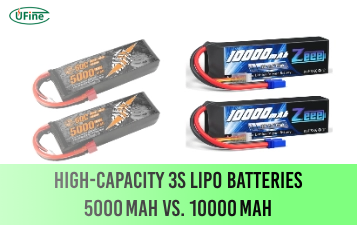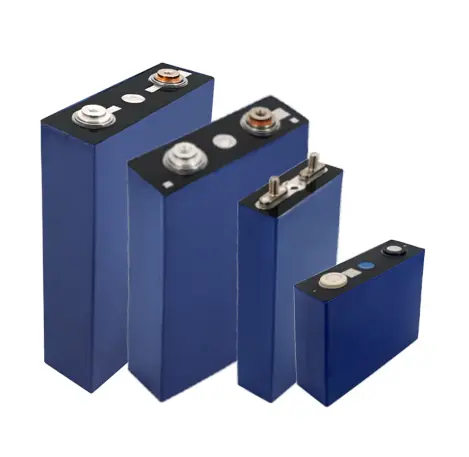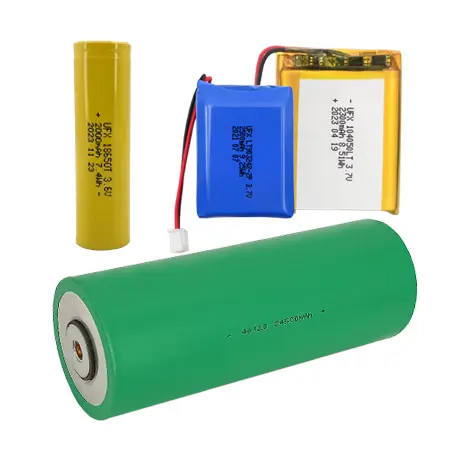When choosing the correct battery for a specific application, understanding the differences between industrial and regular batteries is essential. In this comprehensive article, we will delve into the details of industrial and regular batteries, exploring their definitions, types, and, most importantly, the key differences that set them apart. By the end, you will clearly understand which battery type is best suited for your specific needs.
Part 1. Industrial battery
Industrial Battery Definition
Industrial batteries are big batteries designed for heavy-duty manufacturing, warehousing, and logistics applications. Engineers design these batteries to withstand heavy usage and extreme operating conditions. They are ideal for backup power systems, forklifts, locomotives, and renewable energy storage.
Industrial Battery Types
- Lead-Acid Batteries: These are the most common type of industrial battery. They use lead plates and sulfuric acid to produce electricity. They’re durable and cost-effective but require maintenance.
- Lithium-Ion Batteries: These batteries are gaining popularity due to their high energy density and longer lifespan than lead-acid batteries. They’re lighter and require less maintenance but are more expensive upfront.
- Nickel-Cadmium Batteries: These batteries are known for their reliability and ability to operate in extreme temperatures. People often use them in environments with familiar temperature fluctuations, like cold storage facilities.
- Nickel-Iron Batteries: These batteries have a long lifespan and can withstand overcharging and deep discharges without damage. They’re less common but offer excellent durability and reliability.
- Sodium-Sulfur Batteries: Researchers are currently exploring these batteries for industrial applications due to their high energy density and ability to operate at high temperatures. They’re still in the experimental stage for many industries.
Part 2. Regular battery
Regular Battery Definition
Regular or consumer batteries are small power cells in devices like remote controls, flashlights, toys, and portable electronics. These batteries are designed for everyday household or personal use and come in various shapes and sizes to fit different devices’ requirements.
Regular Battery Types
- Alkaline Batteries: These are the most common type of regular batteries. They use manganese dioxide and zinc as electrodes and an alkaline electrolyte. Alkaline batteries are affordable and have a long shelf life.
- Zinc-Carbon Batteries: These older batteries are less common now due to their lower capacity and shorter lifespan than alkaline batteries. Some low-drain devices still use them.
- Lithium Batteries: Lithium batteries are lightweight and have a high energy density, making them ideal for devices that require long-lasting power, like digital cameras and watches. They’re more expensive but offer superior performance.
- Rechargeable Batteries: These batteries can be reused multiple times with electricity. They come in various chemistries like nickel-metal hydride (NiMH) and lithium-ion (Li-ion). They are environmentally friendly alternatives to disposable batteries.
- Button Cell Batteries: Devices like watches, calculators, and hearing aids utilize these small, round batteries. Due to their low self-discharge rate, they come in various chemistries like alkaline, silver oxide, and lithium and have a long shelf life.
Part 3. Industrial vs. regular batteries: 7 Key differences
Application Scenarios: Where to Use Each Battery Type
Industrial Batteries:
- ✔️ Forklifts (e.g., 48V lithium-ion for warehouse equipment)
- ✔️ Solar energy storage systems
- ✔️ Telecom tower backup power
- ✔️ Railway signaling systemsr
Regular Batteries:
- ✔️ TV remotes (AA/AAA alkaline)
- ✔️ Digital cameras (CR2032 lithium coin cells)
- ✔️ Children’s toys (9V zinc-carbon)
- ✔️ Wall clocks (AAA alkaline)
Part 4. Differences between industrial and regular batteries
Size and Capacity:
- Industrial batteries are typically larger and have higher capacities than regular batteries, allowing them to provide power for heavy-duty machinery and equipment.
- Regular batteries are smaller and have lower capacities, so they are suitable for powering small electronic devices like remote controls and toys.
Intended Use:
- Manufacturers design industrial batteries for demanding industrial environments such as manufacturing plants, warehouses, and construction sites.
- Regular batteries are for everyday consumer use in household gadgets, portable electronics, and toys.
Lifespan:
- Manufacturers construct industrial batteries to withstand frequent charging and discharging cycles, resulting in a longer lifespan than regular batteries.
- Regular batteries have a shorter lifespan and are typically disposable after a single use or a limited number of recharge cycles.
Durability:
- Manufacturers construct industrial batteries to withstand harsh conditions such as extreme temperatures, vibrations, and impacts, ensuring reliable performance in industrial settings.
- Regular batteries are not as rugged and may not endure rough handling or exposure to extreme environments as industrial batteries.
Cost:
- Industrial batteries generally have a higher upfront cost due to their larger size, higher capacity, and more robust construction.
- Regular batteries are more affordable upfront but may incur higher long-term costs due to the need for frequent replacement or recharging.
Rechargeability:
- While some manufacturers design industrial batteries for rechargeable purposes, others may intend them for single-use applications depending on the specific requirements of the industrial equipment.
- Most regular batteries are disposable and not intended for recharging. However, rechargeable options are available for certain types, such as lithium-ion and nickel-metal hydride batteries.
Environmental Impact:
- Industrial batteries may have a more significant environmental impact due to their larger size and higher chemical content, requiring proper disposal or recycling measures to mitigate pollution.
- Regular batteries, especially disposable ones, contribute to environmental waste if not disposed of properly. However, rechargeable options offer a more environmentally friendly alternative by reducing the need for single-use batteries.
|
Specification |
Industrial Battery (12V Lead-Acid) |
Regular Battery (AA Alkaline) |
|
Voltage |
12V |
1.5V |
|
Voltage Range |
12V-48V (customizable) |
1.5V-9V |
|
Capacity |
100Ah-500Ah |
2000mAh-3000mAh |
|
Cycle Life |
500-1500 cycles |
Single-use or 50 cycles (rechargeable) |
|
Weight |
15kg-50kg |
20g-50g |
|
Typical Cost |
$200-$2000+ |
$0.5-$10 |
|
Operating Temp |
-40°C to 60°C |
0°C to 40°C |
This table now specifies that the 3.7V lithium-ion battery is a regular battery. In contrast, the 12V lead-acid battery is an industrial battery.
Part 5. FAQs: Industrial vs. Regular Batteries
What is the main difference between industrial and regular batteries?
Industrial batteries are built for heavy machinery (e.g., forklifts) with higher power capacity and durability, while regular batteries power small devices like remotes and toys.
Can I use regular AA batteries in industrial equipment?
No. Regular batteries lack the voltage (1.5V vs. 12V+) and cycle life (300+ cycles for industrial vs. 50 for regular) required for industrial use.
Which lasts longer: industrial or regular batteries?
Industrial batteries last 5-10 years with proper maintenance, while regular disposable batteries typically last 1-3 years in low-drain devices.
Are industrial batteries more expensive?
Yes. Industrial batteries cost $200-$2000+ (e.g., 48V lithium forklift battery), while regular batteries range from $0.5-$10 per unit.
Part 6. Conclusion
Understanding the distinctions between industrial and regular batteries is essential for making informed decisions regarding power solutions. Industrial batteries offer higher power capacities, durability, and resilience for demanding industrial applications. Regular batteries, designed for everyday consumer use, provide convenience and versatility. Individuals and industries can select the most by considering power requirements, durability, and cost.
Related Tags:
More Articles

High‑Capacity 3S LiPo Batteries: 5000 mAh vs. 10000 mAh
Compare 3S LiPo 5000mAh vs 10000mAh batteries by weight, power, and use. Find the best fit for your drone, RC car, or boat setup.
Top 5 Applications for Small 3S LiPo Batteries
Small 3S LiPo batteries power drones, RC gear, wearables, and robotics with high energy and low weight. Making them ideal for compact electronics projects.
Building and Charging Your Own 3S LiPo Pack: A Step‑by‑Step Guide
Learn how to build, balance, and charge a 3S LiPo battery pack safely at home with this complete DIY guide for hobbyists and beginners.
How to Choose the Right LiPo Battery Plug Type?
Discover the best LiPo battery plug types, how to choose them, and expert tips for safe usage, soldering, and maintenance.
Choosing the Right Connector for Your 3S LiPo Battery
Choosing the right 3S LiPo connector depends on current, space, and use. Learn the pros and cons of XT60, JST, EC3, and more.





